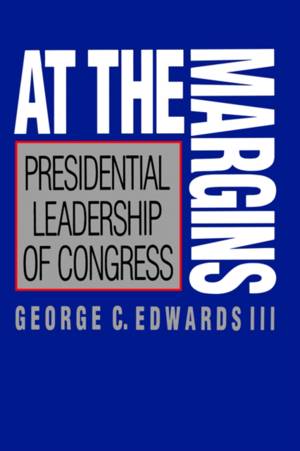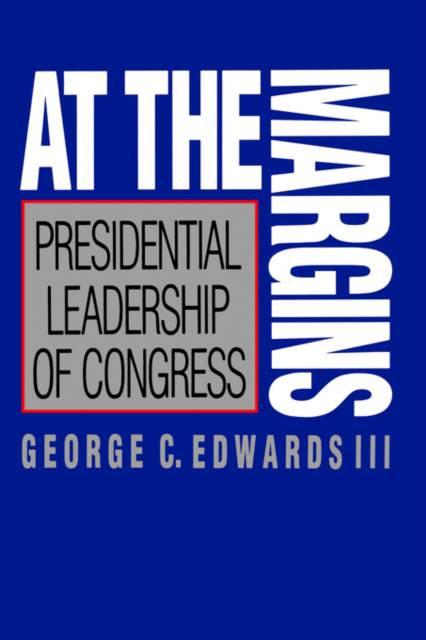
Bedankt voor het vertrouwen het afgelopen jaar! Om jou te bedanken bieden we GRATIS verzending (in België) aan op alles gedurende de hele maand januari.
- Afhalen na 1 uur in een winkel met voorraad
- In januari gratis thuislevering in België
- Ruim aanbod met 7 miljoen producten
Bedankt voor het vertrouwen het afgelopen jaar! Om jou te bedanken bieden we GRATIS verzending (in België) aan op alles gedurende de hele maand januari.
- Afhalen na 1 uur in een winkel met voorraad
- In januari gratis thuislevering in België
- Ruim aanbod met 7 miljoen producten
Zoeken
€ 55,95
+ 111 punten
Omschrijving
In this book George Edwards seeks a deeper understanding of the relationship between the president and Congress, exploring how and under what conditions presidents lead Congress, what we can reasonably expect of them, and how we should evaluate their performance. He makes a persuasive case for his thesis that presidential leadership of Congress is typically at the margins, not the core, of policymaking. Edwards focuses on three important resources for presidential leadership: party, public opinion, and legislative skills. For each source of influence he analyzes the president's strategic position, the theoretical potential of the resource as an instrument of leadership. He then examines presidents' attempts to employ each resource to obtain support in Congress, showing that they are rarely able to expand their resource base or manipulate their resources reliably. Integrating quantitative analysis with documentary and historical research, Edwards argues that the effective leader is not the dominant chief executive of political folklore who restructures the contours of the political landscape to pave the way for change but is rather a facilitator who works at the margins of coalition building to exploit opportunities presented by a favorable configuration of political forces in his environment. Presidents are not by themselves going to bring about major changes in public policy, says Edwards, and we must adjust accordingly our expectations of their leadership. The implications of his book are broad, and his findings are an important corrective for those who personalize politics and attribute more influence to a single person or strategy than is usually merited.
Specificaties
Betrokkenen
- Auteur(s):
- Uitgeverij:
Inhoud
- Aantal bladzijden:
- 247
- Taal:
- Engels
Eigenschappen
- Productcode (EAN):
- 9780300048995
- Verschijningsdatum:
- 25/07/1990
- Uitvoering:
- Paperback
- Formaat:
- Trade paperback (VS)
- Afmetingen:
- 156 mm x 234 mm
- Gewicht:
- 362 g

Alleen bij Standaard Boekhandel
+ 111 punten op je klantenkaart van Standaard Boekhandel
Beoordelingen
We publiceren alleen reviews die voldoen aan de voorwaarden voor reviews. Bekijk onze voorwaarden voor reviews.









